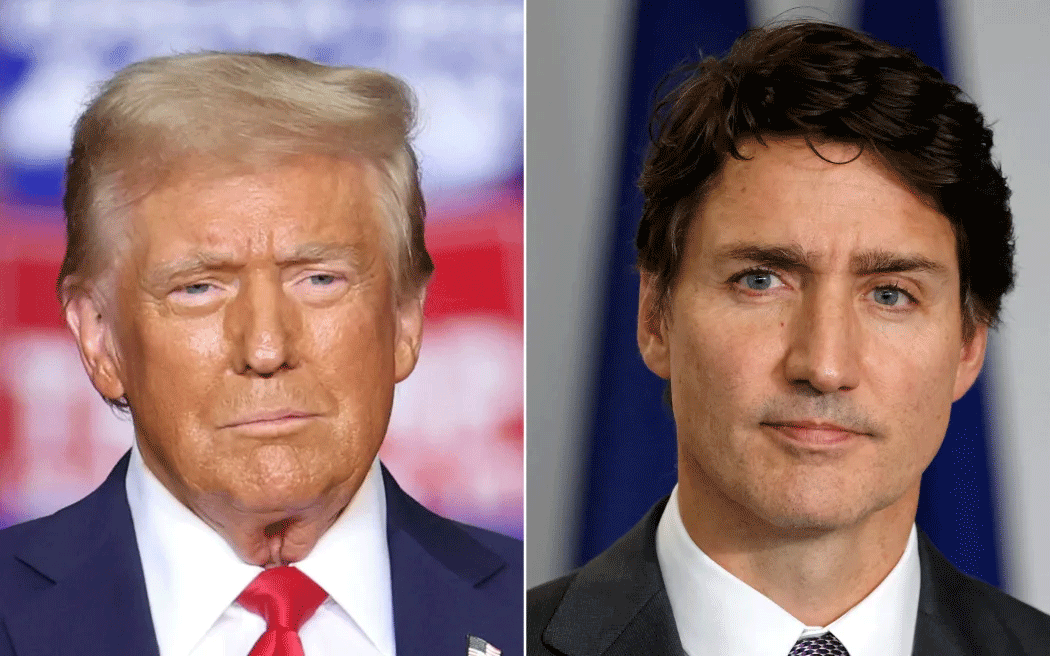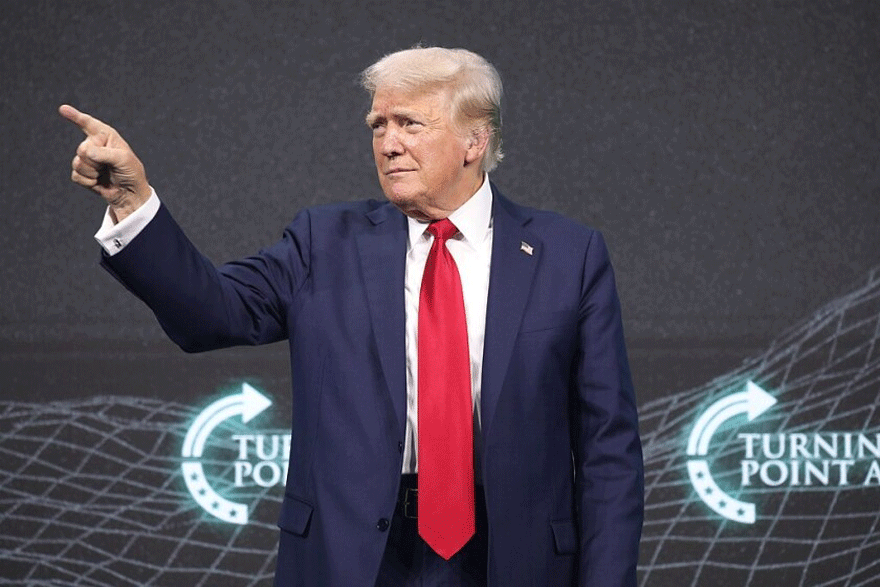Canada and Mexico have already imposed tariffs on the United States and said they will retaliate. Meanwhile, Donald Trump's executive order includes a clause to retaliate if any country retaliates. The spiral of retaliation is alarming the global economy.
Canadian Prime Minister Justin Trudeau has just announced that he will impose a 25% tax on $106 billion worth of US goods, right after President Donald Trump announced early on February 2 (Vietnam time) that he would impose a similar tax on most goods from the neighboring country, effective from February 4.
Accordingly, Canada will impose tariffs in two phases. Phase 1 has a 25% tax rate, affecting nearly $21 billion worth of US goods exported to Canada, starting February 4. Phase 2 will be applied after three weeks, affecting about $86 billion worth of US goods.
The first items to be taxed include clothing, shoes, perfume, beer, wine and bourbon, fruit and fruit juice… Later, the Trudeau government will expand to sporting goods, household appliances and furniture…
Canada is also considering restricting exports of critical minerals and energy products to the US…
Meanwhile, on social network X, Mexican President Claudia Sheinbaum said she had ordered the economy minister to implement tariff and non-tariff measures to protect Mexico's interests.
The move by Canada and Mexico comes after President Donald Trump issued an executive order imposing a 25% tariff on imports from Canada and Mexico and a 10% tariff on Chinese goods from February 4.
The order does not specify when the tariffs will be lifted. It includes a clause that would trigger retaliation if any country retaliates in any way, meaning future tariff increases are possible.

Donald Trump's move is aimed at retaliating against Canada and Mexico for failing to stop illegal immigration and the flow of fentanyl (an addictive painkiller) into the US. China is being punished for the fentanyl problem. This is a drug that is said to have "killed tens of millions of Americans".
Canada, in particular, will see a 10% tax on energy resources. Earlier, Donald Trump said higher tariffs on oil and natural gas would be imposed in mid-February.
Total annual trade turnover between the US and these three countries amounts to 1,600 billion USD.
Trump’s tariffs and the retaliation from major trading partners are the first shots signaling a fierce trade war to come. It could have far-reaching effects on the global economy, from supply chains, FDI flows, finance and other geopolitical issues.
Mr. Trump signed an executive order imposing new tariffs on Canada, Mexico and China based on the International Emergency Economic Powers Act (IEEPA). This is considered an unprecedented decision by the new administration after less than 2 weeks in office.
These tax decisions reverse the free trade provisions between the three countries of the US, Mexico and Canada under the USMCA free trade agreement. The impact is huge because these countries account for more than 40% of total US imports, worth trillions of dollars.
In fact, the reason Mr. Trump imposed high taxes was because of the large trade deficit, totaling more than 600 billion USD, accounting for more than 50% of the country's trade deficit.
What is worrying is that Canada and Mexico have responded so strongly and almost immediately. This could set off a cycle of retaliation, then counter-retaliation… that could go on indefinitely if negotiations fail.
Mr Trudeau accused Mr Trump's order of violating the agreement and of "an attempt to destroy the Canadian economy". He said Ottawa would not stand idly by and take the hit. The Canadian prime minister urged Canadians not to vacation in the US and to boycott some US goods.
Mr Trudeau said he tried to negotiate with Mr Trump but was unsuccessful.
Meanwhile, the Mexican president has taken a more cautious approach, saying that the government wants cooperation and dialogue, not confrontation with the United States. However, Ms. Sheinbaum has also asked for a “Plan B.”

Source: https://vietnamnet.vn/canada-mexico-tung-don-thue-vao-my-vong-xoay-tra-dua-nguy-hiem-2367813.html


![[Photo] Prime Minister Pham Minh Chinh receives Swedish Minister of International Development Cooperation and Foreign Trade](https://vphoto.vietnam.vn/thumb/1200x675/vietnam/resource/IMAGE/2025/5/12/ae50d0bb57584fd1bbe1cd77d9ad6d97)
![[Photo] Prime Minister Pham Minh Chinh works with the Standing Committee of Thai Binh Provincial Party Committee](https://vphoto.vietnam.vn/thumb/1200x675/vietnam/resource/IMAGE/2025/5/12/f514ab990c544e05a446f77bba59c7d1)



![[Photo] Prime Minister Pham Minh Chinh starts construction of vital highway through Thai Binh and Nam Dinh](https://vphoto.vietnam.vn/thumb/1200x675/vietnam/resource/IMAGE/2025/5/12/52d98584ccea4c8dbf7c7f7484433af5)







































































Comment (0)